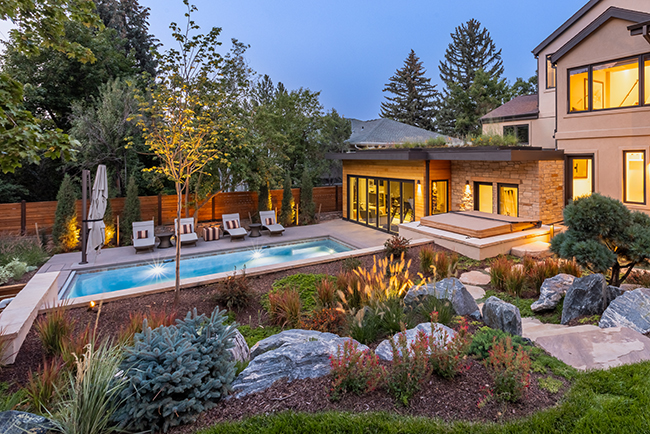Boundless Landscapes: Losing Lawns, Gaining Farmland
02 Nov 2019
Local teens learn valuable skills at micro-farms and tackle nutrition and climate issues at the same time with Boundless Landscapes
By Sara Bruskin Photos by Kirsten Boyer Photography “There’s a hypothesis that if ten percent of the homes in Boulder grew food, thirty percent of our produce could come from Boulder,” says Mara Rose, co-founder and CEO of Boundless Landscapes. She and her business partners dream of one day creating entire food forests on residential lots in Boulder, where fruit trees will shade mushroom logs, perennial plants will return year after year, and vegetables and herbs will sprout from seeds specifically adapted to Colorado’s ecosystems.

Valuable Lessons
Broader access to nutrient-dense produce at affordable prices is a big goal of the Boundless Landscapes program. Farm manager Jennifer “Fern” Deininger says, “Food justice is an important topic right now. We’re looking at a systemic view of who has healthy food, who doesn’t, why is that, where is that and how do we grow enough food for everyone? Because, plain and simple, enough food is being grown. There are just allocation and land-degradation issues.”













